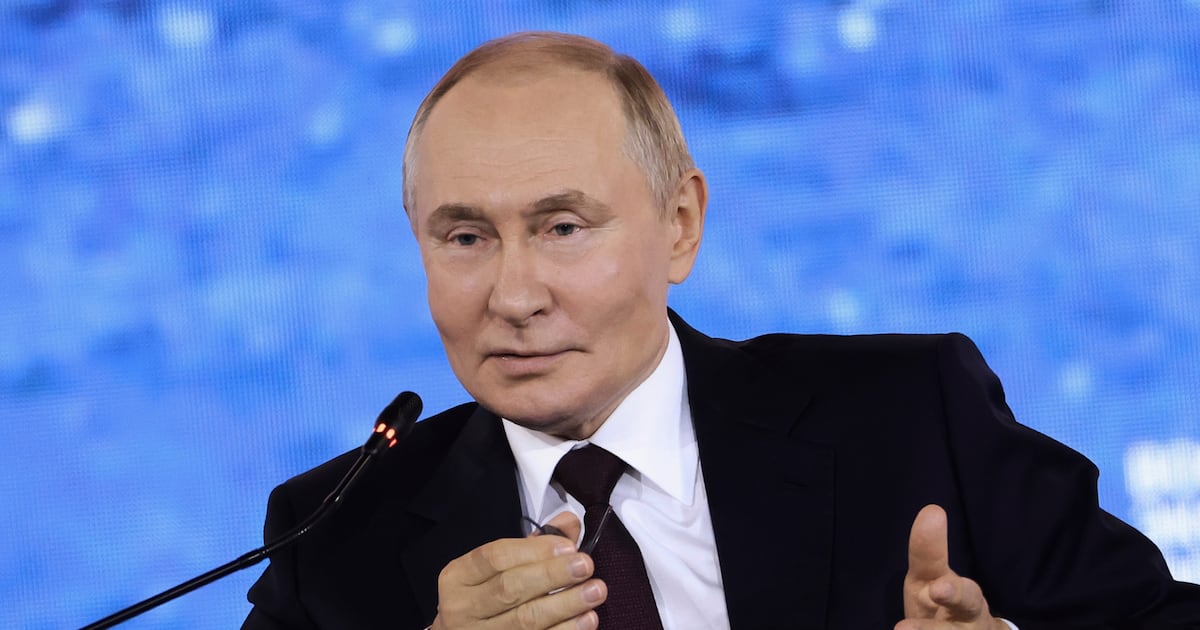World
Putin Launches Largest Drone Assault on Ukraine, Defying Peace Efforts

Russia has launched its most extensive air assault on Ukraine to date, deploying over 800 explosive-laden drones and 13 missiles in the early hours of Sunday. This marked a significant escalation as the attacks hit central Kyiv, targeting government headquarters and igniting a fire that sent a clear message about the current state of US-led diplomatic efforts.
The timing of this offensive coincided with a visit by President Vladimir Putin to China, where he engaged in discussions that underscored the shared objectives of autocratic regimes in opposition to Western influence. Following his return, Putin exhibited a heightened sense of confidence, openly ridiculing US attempts to mediate peace talks between Russia and Ukraine.
The latest drone strikes were a stark reminder of the challenges facing the international community. The United States has faced criticism for its indecision, which some believe has contributed to Putin’s aggressive stance. Just a day prior to the attacks, representatives from 26 Western countries, including Ireland, expressed readiness to support a postwar “reassurance force” for Ukraine if a peace agreement could be secured.
Despite this, Putin has threatened to consider any foreign troops on Ukrainian soil as “legitimate targets for destruction.” He further dismissed the prospect of meeting Ukrainian President Volodymyr Zelenskiy at a neutral venue, insisting that any discussions must take place in Moscow, which complicates the peace process significantly.
Former US President Donald Trump has indicated that while the US will not send peacekeepers to Ukraine, it is open to coordinating postwar security guarantees, potentially including air support. Meanwhile, a “coalition of the willing,” comprising mostly European nations along with Canada and Australia, is actively working to solidify commitments among its members. Under the loose leadership of France and Britain, this coalition seeks to navigate the complexities of postwar security.
Reports have surfaced indicating that the US plans to terminate a program known as Section 333, which funds military training and equipment for Eastern European NATO states. This move signals a lack of commitment to maintaining the US’s leading role in regional security, further emboldening not only Putin but also other authoritarian leaders worldwide.
As the West grapples with these internal challenges, the security architecture appears increasingly fragile. This situation not only heightens tensions with Russia but also impacts relations with other nations, including China, North Korea, and Iran, which are deepening their cooperation amid a shifting global landscape. The repercussions of these developments will likely influence international relations for years to come, as the balance of power continues to evolve.
-

 Entertainment1 month ago
Entertainment1 month agoAimee Osbourne Joins Family for Emotional Tribute to Ozzy
-

 Politics1 month ago
Politics1 month agoDanny Healy-Rae Considers Complaint After Altercation with Garda
-

 Top Stories3 weeks ago
Top Stories3 weeks agoIreland Enjoys Summer Heat as Hurricane Erin Approaches Atlantic
-

 World2 months ago
World2 months agoHawaii Commemorates 80 Years Since Hiroshima Bombing with Ceremony
-

 Top Stories2 months ago
Top Stories2 months agoFianna Fáil TDs Urgently Consider Maire Geoghegan-Quinn for Presidency
-

 World2 months ago
World2 months agoGaza Aid Distribution Tragedy: 20 Killed Amid Ongoing Violence
-

 World2 months ago
World2 months agoCouple Convicted of Murdering Two-Year-Old Grandson in Wales
-

 World2 months ago
World2 months agoAristocrat Constance Marten and Partner Convicted of Infant Murder
-

 Top Stories2 months ago
Top Stories2 months agoClashes Erupt Between Far-Right Groups and Migrants in Spain
-

 Top Stories2 months ago
Top Stories2 months agoHistoric Dalkey Pub The Queens Reopens Under New Management
-

 World2 months ago
World2 months agoTrump Defends FBI Deputy Director Amid Epstein Files Controversy
-

 Politics2 months ago
Politics2 months agoTragic Crowd Surge at Gaza Aid Center Claims 20 Lives









